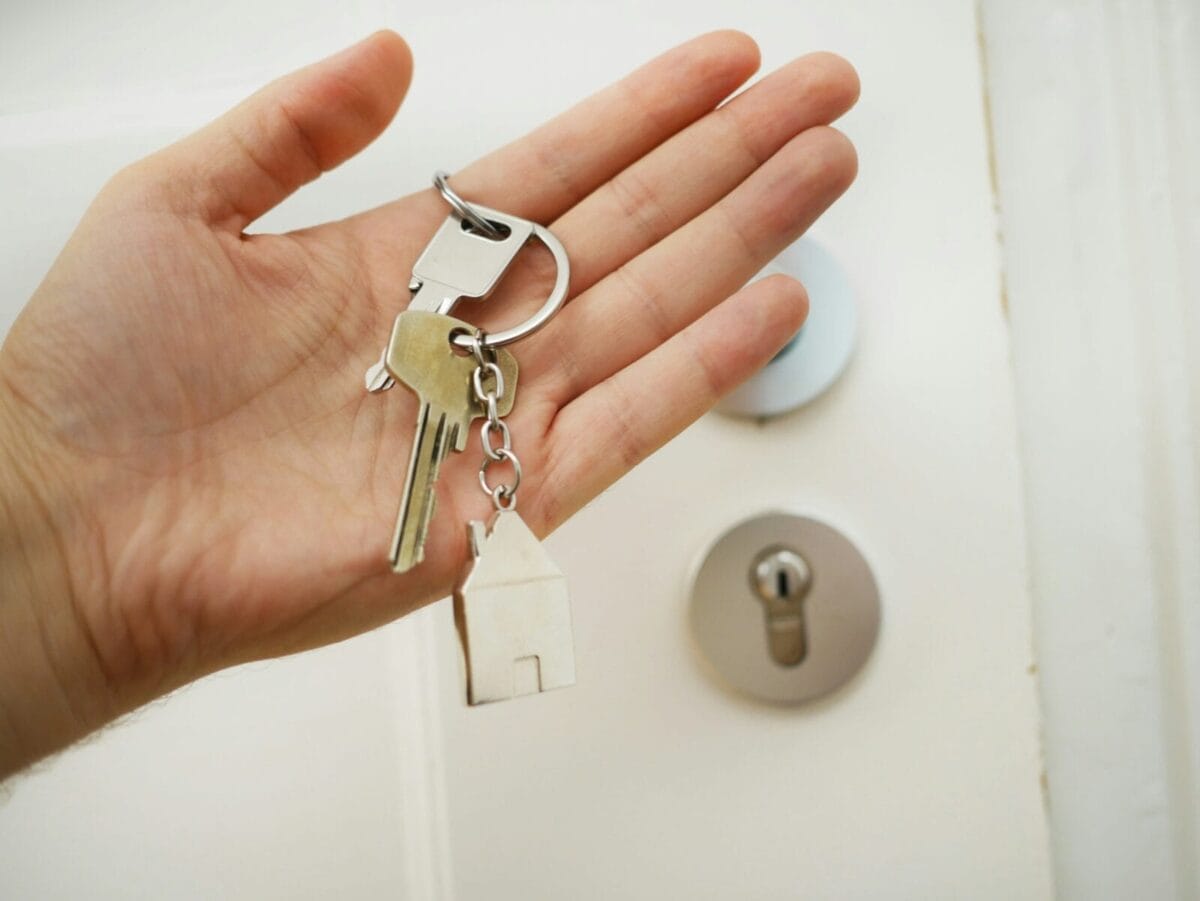Buying your first home is a major life milestone, but often overwhelming. From navigating mortgages to finding the right location, first-time buyers face a unique set of challenges.
To shed light on this journey, Barratt Homes has released its First-Time Buyers Report, drawing on the latest data from the ONS, government housing insights, and a survey of 2,000 UK homeowners. The report uncovers key trends, buyer behaviours, and the support available to help new homeowners take their first step onto the property ladder.
Challenges facing first-time buyers
When asked how confident first-time buyers were in the home-buying process, half (47%) stated that they didn’t feel confident, with the homeowner study highlighting a clear knowledge gap.
Similarly, when asked what they found the most challenging, one in five (21%) stated that understanding the different mortgage options was the most challenging part of the process.
| The most challenging part | Percentage |
| Finding a home within budget | 27% |
| Understanding mortgage options | 21% |
| Finding a home they liked | 20% |
| Competing with other buyers | 12% |
| Understanding overall costs | 11% |
| Saving up for a deposit | 9% |
Meanwhile, over a quarter (27%) of first-time buyers stated that finding a home within budget was the biggest hurdle, alongside an additional 12% stating competing with other buyers.
As for where first-time buyers are turning for mortgage advice, the most popular source for information are mortgage brokers, with almost half (46%) of buyers having consulted with one.
| Information source | Percentage |
| Mortgage broker | 46% |
| Online search | 20% |
| Family advice | 18% |
| A bank advisor | 11% |
| Friends’ advice | 5% |
| Social media | 1% |
This is followed by one in five (20%) using online searches as their primary source of mortgage information, closely followed by 18% turning to family members, and a further 11% to friends.
Saving up for a deposit can be challenging for first-time buyers, with one in 10 (9%) revealing that they struggled with this the most.
Additional data found that the average first-time buyer in the UK saves for up to three years to be able to afford a deposit payment; however, for many, it can take longer depending on the local property prices.
Deposit saving measures taken by first-time buyers
As for which measures homebuyers are adopting to help save for a deposit, setting up a dedicated savings account tops the list, with 38% doing so.
| Savings measure | Percentage |
| Setting up a savings account | 38% |
| Cutting back on socialising | 32% |
| Working longer hours | 24% |
| Selling old possessions | 16% |
| Leaned on family for contributions | 15% |
| Moved back in with family | 14% |
| Taken on an additional job | 14% |
| Pushed for a pay rise/promotion | 12% |
| Using a Help-to-Buy scheme | 12% |
This is followed by 32% cutting back on socialising in a bid to cut back on any unnecessary spending.
Other measures taken include working longer shifts/more hours, with 24% doing so, as well as 14% taking on an additional job, and 12% pushing for a pay rise at work.
Family members also play a crucial role in assisting first-time buyers, with 15% leaning on their family to contribute financially to a deposit, and 14% moving back in with family in a bid to save on rent payments.
Analysing data from the government’s UK House Price Index revealed the average price of a house deposit for first-time buyers is £54,200, however, regionally, there is a large difference.
The most common deposit amount is a 10% down payment, followed by 5% and then 15%.
The collected data found that the overwhelming majority (92%) of first-time homebuyers rely on securing a mortgage, with only 8% buying their property outright.
Interestingly though, only 12% of homebuyers stated that they used a Help-to-Buy or equivalent scheme to help secure their home.
Although there are many different schemes available from both mortgage providers and housing developers, data from the study found that one in five first-time buyers lack awareness of these affordable home ownership schemes.
Available support for first-time buyers
Adrian MacDiarmid, Head of Mortgage Relations at Barratt Homes, has shared six lesser-known schemes that can also support first-time buyers onto the property ladder.
1. Low Deposit Mortgages
FTBs often presume that they need to have more deposit than they actually do. More and more lenders are offering mortgages at higher loan to values, meaning that many buyers only need a 5% deposit.
In some cases, 100% mortgages or no deposit mortgages are now being offered by some lenders where the lender provides a mortgage for the full amount of the property’s purchase price.
2. First Homes Scheme
If you live in England, you could be eligible for the Government’s First Homes Scheme, which offers a discount of up to 50% on new build homes. To qualify, you need to have an income of £80,000 or less (£90,000 in London).
Councils typically set local eligibility criteria, such as:
- key workers, as defined by the council
- people who already live in the area
- those on lower incomes
3. Shared Ownership Schemes
Shared ownership is a home buying scheme that allows consumers to purchase a share of a property, typically between 25% and 75%, and pay a discounted rent on the remaining share to a housing association. This makes it an affordable way to get on the property ladder when a full purchase is unaffordable.
Over time, you can buy additional shares in the property through a process called “staircasing,” gradually increasing your ownership and reducing your rent until you own a house outright, if this is affordable.
4. Own New – Rate Reducer
Buyers could see mortgage interest rates that are 2.2% or below with Own New – Rate Reducer, a scheme available on new build homes for up to the first five years.
The scheme could mean lower mortgage rates and reduced monthly payments, whether you’re a first-time buyer or an existing homeowner.
Dependant on the build stage of your chosen home, Barratt Redrow, and other developers in the scheme, could contribute up to 5% of the purchase price towards your move.
5. The Track Record Mortgage
If you rent a home and have a good track record of paying the bill each month, you could qualify for a specialised deal from Skipton Building Society – and you don’t need to save a deposit at all.
The Track Record 100% mortgage from the lender is available to renters buying their first property.
The amount you can borrow is capped as your monthly repayment can’t be more than you currently pay in rent. You need to show a strong track record of paying your rent on time and in full.
An independent mortgage adviser can help you apply for the deal and compare it to others on the market.
6. Key Worker Deposit Contribution Scheme
Barratt Redrow’s three brands – Barratt Homes, David Wilson Homes and Redrow – have a Key Worker Deposit Scheme that celebrates the country’s millions of Key Workers including teachers, nurses, council workers and foster carers.
As a thank you for the support provided to communities, Barratt Redrow is offering key workers a contribution towards their deposit.
With the scheme, for every £20,000 spent on the purchase price of a home, a contribution of £1,000 will be made towards the deposit – up to £25,000. For a home costing £300,000, you would qualify for a contribution of £15,000.
For more information, please visit the Barratt Homes website: https://www.barratthomes.co.uk/advice-and-inspiration/first-time-buyer-report/















